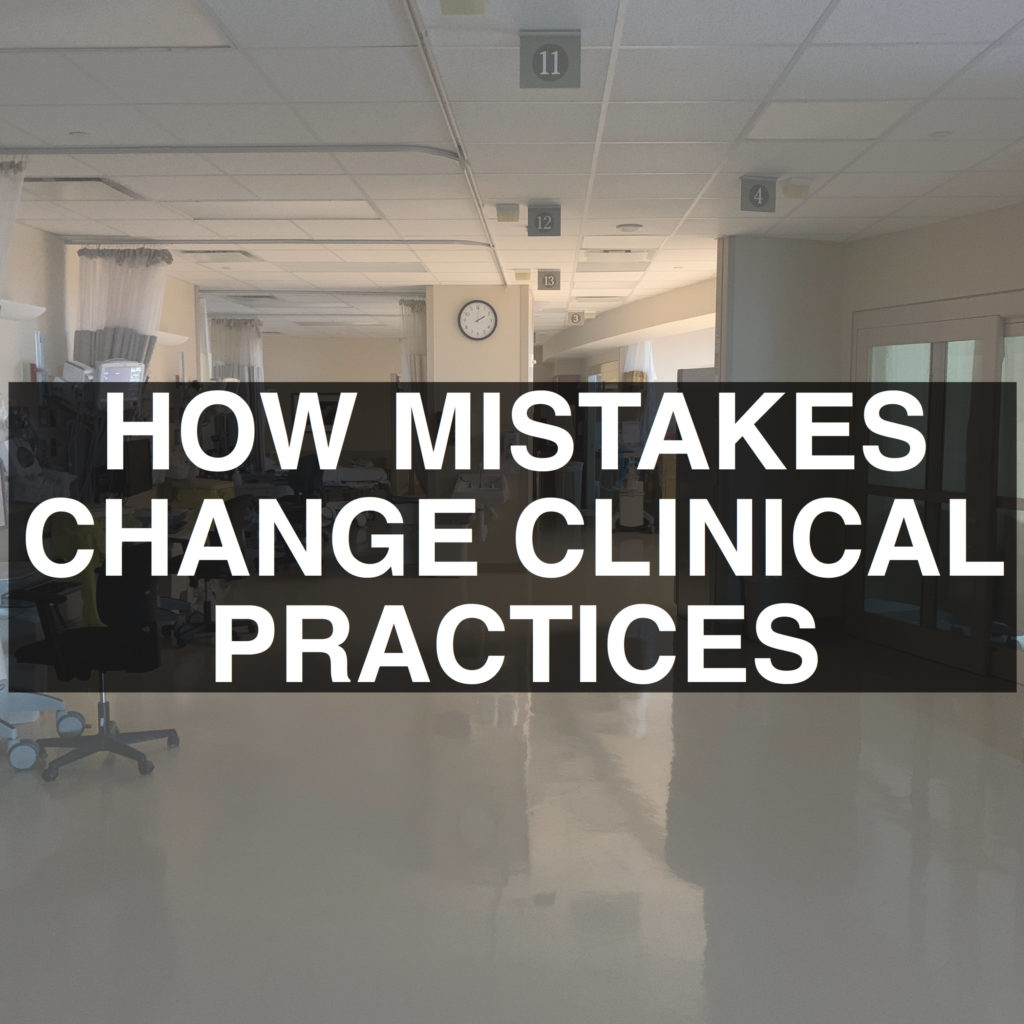When fallible healthcare providers practice an imperfect science like medicine, mistakes are inevitable no matter how many protocols, checklists, or measures are in place. Some estimates suggest ~ 100,000 patients die yearly from medical errors. There are processes which aim to identify how errors occur and potential changes that could prevent similar mistakes in the future (ie, root cause analysis, event analysis, etc.).
Although these techniques enable us to improve patient safety and the overall quality of care, often times our way of dealing with a mistake is by completely stopping a therapy, intervention, workup, or process that has helped countless other patients beforehand.
Stop allowing singular events to alter practices indiscriminately and focus on the actual circumstances surrounding an unfavorable outcome. Completely eliminating a practice and implementing protocols with even more layers of complexity often results in less compliance and more hurdles encircling efficient patient care in a system already inundated with charting fatigue.
Learn from every mistake and seize opportunities for improvement; however, keep the big picture in mind, use evidence-based practices rather than anecdotal/dogmatic teachings, and entertain the possibility that yes, a bad outcome was unfortunately the natural progression of the disease at hand.
Drop me a comment with how you learn from your mistakes and use that to alter your practices!






